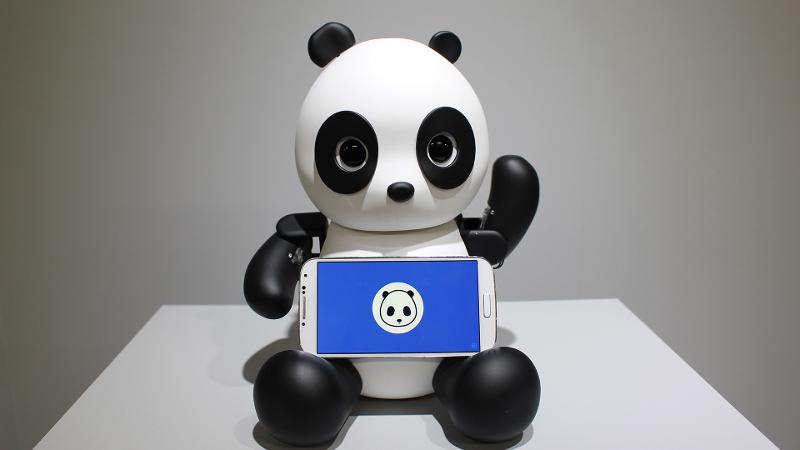
How would you feel if your best friend in your twilight years was a robot? It’s one of the many thought-provoking questions being posed at QUT’s Robotronica event on Sunday.
Companion robots have been touted – controversially – as a possible solution to society’s loneliness epidemic, particularly for people living longer alone in their homes.
Research published this month by the American Psychological Association warned loneliness and social isolation may be a greater public health hazard than obesity.
Whether or not you like the idea of robotic relations, visiting international roboticist and roboethicist to QUT Professor Ron Arkin believes a future with companion robots is probable – and now is the time to discuss the ethics of forming close relationships with machines.
“The advent of robots pose many risks to our future, and intimate robots is one of the top concerns,” said Professor Arkin, a Georgie Tech academic and visiting Fellow at QUT’s School of Electrical and Computer Science.
“Robots can foster attachments to artefacts that toys cannot due to their physical presence in the world and their ability to sense and act. Roboticists and designers can tap into the nature of human psychology to make people care about robots.”
Professor Arkin will discuss the ethics of robot intimacy in an adults-only keynote address at Robotronica, Australia’s largest one-day robotics festival, this Sunday.
Recent movies and television series such as Ex Machina, Her and Westworld have brought the often confronting topic of robot intimacy into the public light.
The precursors to sex robots are becoming commercially available and focus on a small portion of the population.
Professor Arkin said we won’t know how intimate robots will affect society until they are scientifically evaluated.
“It’s near impossible to study the effect scientifically because of the stigma attached to robot sexuality,” he said.
“Robot intimacy will no doubt affect human-to-human relationships. It’s is not up to roboticists to tell the world what’s right or wrong but to foster the discussion among all stakeholders so society can debate now the ethical implications.”
Creating emotional connections between humans and intelligent machines is a focus of Soh Yeong Roh, founder and director of Art Center Nabi in Korea and Robotronica panellist and exhibitor.
Art Center Nabi is internationally renowned for its goal of humanising technology, asking questions such as: how can we make a robot more like a dog?
Art Center Nabi’s exhibition Why future still needs us: AI and humanity at Robotronica includes Robo-Panda, created by Nabi E.I.Lab, which expresses emotion in response to fairy tales – anger, sadness, fear, disgust and joy.
“Corporations such as Google, Microsoft and IBM are competing with each other to release software with an open architecture. This is because artificial intelligence cannot develop without cooperating with diverse fields since it is technology that is so tied to our everyday life,” said Soh Yeong.
“Media artists often use technology in ways that engineers have never thought about.”
Professor Arkin and Soh Yeong join an international line-up of speakers, exhibitors and robots, which also includes:
- Australian Robowars Championship – Steven Martin
- The Agency of Human-Robotic Lunatics world premiere mixed reality keynote - Dr Sarah Jane Pell
- Mako surgical robot – Michael Nasuta, Stryker
- Pepper at QUT – Belinda Ward
- Scenic, Mr Partybot and more – Cake Industries
- Code-A-Bot – Sean Druitt
- The Travelling Garden of Life – Prof Jonathan Roberts and Dr Jared Donovan
- Who Are These Robots? – Arthur Brampston
- Harvey the capsicum picker – Dr Christopher Lehnert
- Electric Puppet - Georgie Pinn
- Bremen Music Bot – DooEun Choi, Nabi E.I.Lab
- Star Wars Redback Garrison 501st Legion.
Robotronica runs 9 am–4 pm Sunday August 20 at QUT’s Gardens Point (city) campus.
Media contacts:
Kate Haggman, QUT Media, 0400 548 013, kate.haggman@qut.edu.au
Rose Trapnell, QUT Media team leader, 0407 585 901, media@qut.edu.au
QUT is part of a national collaborative group of five major Australian universities that form the ATN (Australian Technology Network of Universities).




